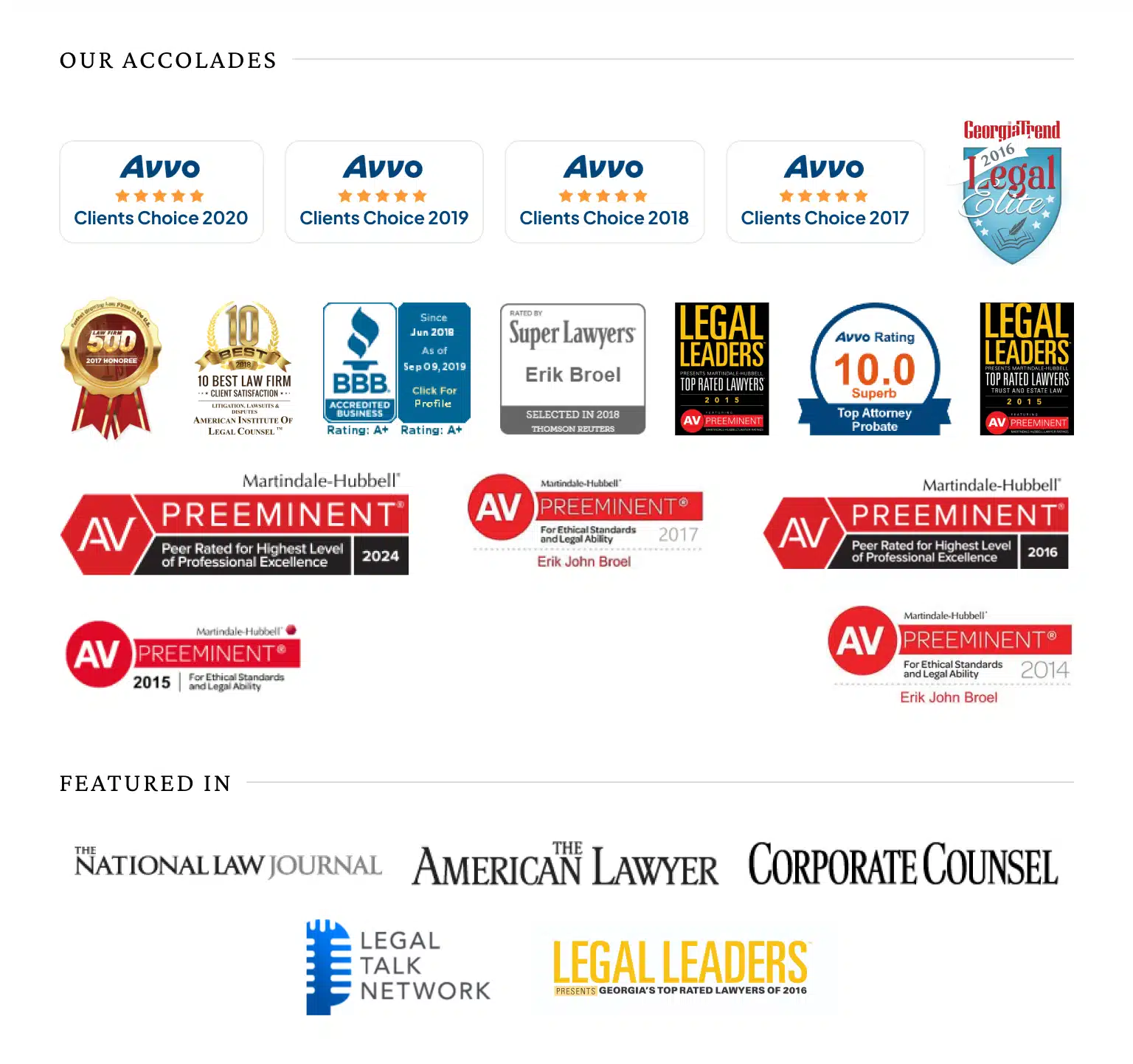Questions like “Does the executor of a will get paid?” frequently appear in the discussions between Georgia probate lawyers and their clients.
It is a topic of interest for both beneficiaries or appointed Executors who want to ensure each party is compensated correctly.
If you are an Executor, you realize the volume of work and effort this activity implies and want to receive reasonable compensation. If you are a beneficiary, you are interested in paying fewer fees and ensuring that the executor completes his duties correctly.
Let’s discuss in detail the situations that might arise and everything you should know about executor fees in Georgia.
Being an Executor involves many responsibilities that must be fulfilled during probate. The probate process may be lengthy; it may take months or years to complete. It’s the primary reason why an executor fee may apply.
Plus, Executors have the right to receive compensation for their services. They have to perform a variety of tasks, among which:
Under Georgia law, an executor may serve with or without being paid, as directed in the will.
If the will specifies that the executor will not be paid for their duty, then they will not receive executor fees.
Settling an estate in Georgia can take time, and in some situations, the executor receives a fee for the time and energy spent while handling everything.
There is no straight answer to this question. It depends on the situation.
Suppose the will mentions an executor compensation. In such cases, it may set a specific amount of compensation or a flat fee or indicate a formula or other method of calculating the executor’s fee.
After the will is probated, accepted by the Probate Court, and the estate is administered, the executor will receive the amount listed as executor fees.
Consequently, the executor will receive the payment as the will directs and usually may not receive additional compensation under Georgia probate law.
Suppose the will is probated and accepted by the Court as the Last Will and Testament and explicitly states that the executor will not be paid for their role. In that case, they will not receive any payment for serving as executor.
If the will does not mention Executor fees at all or if the will specifies that the executor is to receive a commission for serving as executor but not the exact amount or fee, then they will get paid for their time as an Executor.
And will be compensated according to the default rules of Georgia probate law.
The state law outlines the following:
Executor payment has to respect the rule that creditors get satisfied before heirs and beneficiaries receive their distribution.
There is an order of creditors that must be satisfied.
In Georgia, a system dictates which debts are paid first. The following order should be respected:
Consequently, the executor gets paid after year’s support, and funeral costs are discharged.
The 3rd creditor on the list is Administration Fees. The executor’s compensation is often a part of this creditor claim and is paid before beneficiaries receive their portion of the inheritance.
Administration fees are the costs associated with the estate settlement process, including Court and legal fees.
As mentioned above, creditors must be satisfied in the correct order once an estate has been opened. The administration fees, considered the 3rd creditor on the list to be satisfied, will be paid after funeral expenses and year’s support.
Often, an Executor can ask to be reimbursed for certain expenses from the estate if the Court has appointed them as the executor. These are out-of-pocket expenses that the executor had to pay before the estate funds were available.
The executor may ask for the reimbursement of such expenditures even if the will states that he should not receive payment or if the latter has waived compensation.
The types of costs that qualify for reimbursement are:
To ensure that an executor is asked to be reimbursed for proper expenses, it is best practice to have an experienced probate and estate attorney assist you through this process.
Yes, if an Executor does not want to receive payment for serving as an Executor, they can waive the compensation.
Sometimes, family members named executors choose to refuse the executor fees they may be entitled to, mainly if they are also beneficiaries of the will. Usually, executor fees are taxable income, and will bequest may be exempted from taxes.
However, it is recommended to consider all the details when rejecting the payment because serving as executors or personal representatives is a complex task. And it requires lots of time and effort.
Each executor will receive the amount indicated in the will. The will may state different executor’s fees for each of them.
They receive no compensation for their services.
The executors will be compensated according to GA’s probate law and will split the compensation equally.
The time that it can take an executor to finish settling an estate can vary depending on many factors, including the number of heirs and beneficiaries involved, the complexity of the estate, and if there are any family probate disputes.
Georgia has no dedicated timeline that states that the executor must pay the beneficiaries by a specific date.
A simple non-dispute estate in Georgia is usually settled in 12-18 months but can take longer, depending on particular circumstances.
If an heir or beneficiary feels that the executor is taking too long to settle the estate and pay beneficiaries, he can ask for legal advice. Our probate team is ready to assist them; contact our office at (770) 796-4582 and schedule a consultation.
Disclaimer These websites have not been reviewed by Georgia Probate Law Group and are not endorsed or even recommended by Georgia Probate Law Group. These websites are additional resources that you can use to further your general education on this topic.
Disclaimer: The information above is provided for general information only and should not be considered legal advice. Our probate attorneys provide legal advice to our clients after talking about the specific circumstances of the client’s situation. Our law firm cannot give you legal advice unless we understand your situation by talking with you. Please contact our law office to receive specific information about your situation.
Compassionate listeners, knowledgeable guidance. Schedule a free consultation with our team and let us help you and your family with your legal concerns.
GET IN TOUCH 770-796-4685Learn Important Probate Essentials, including key things that go wrong in an estate, how to prevent them, and what to do if they happen.



© 2025 Georgia Probate Law Group by Broel Law, LLC. All rights reserved.